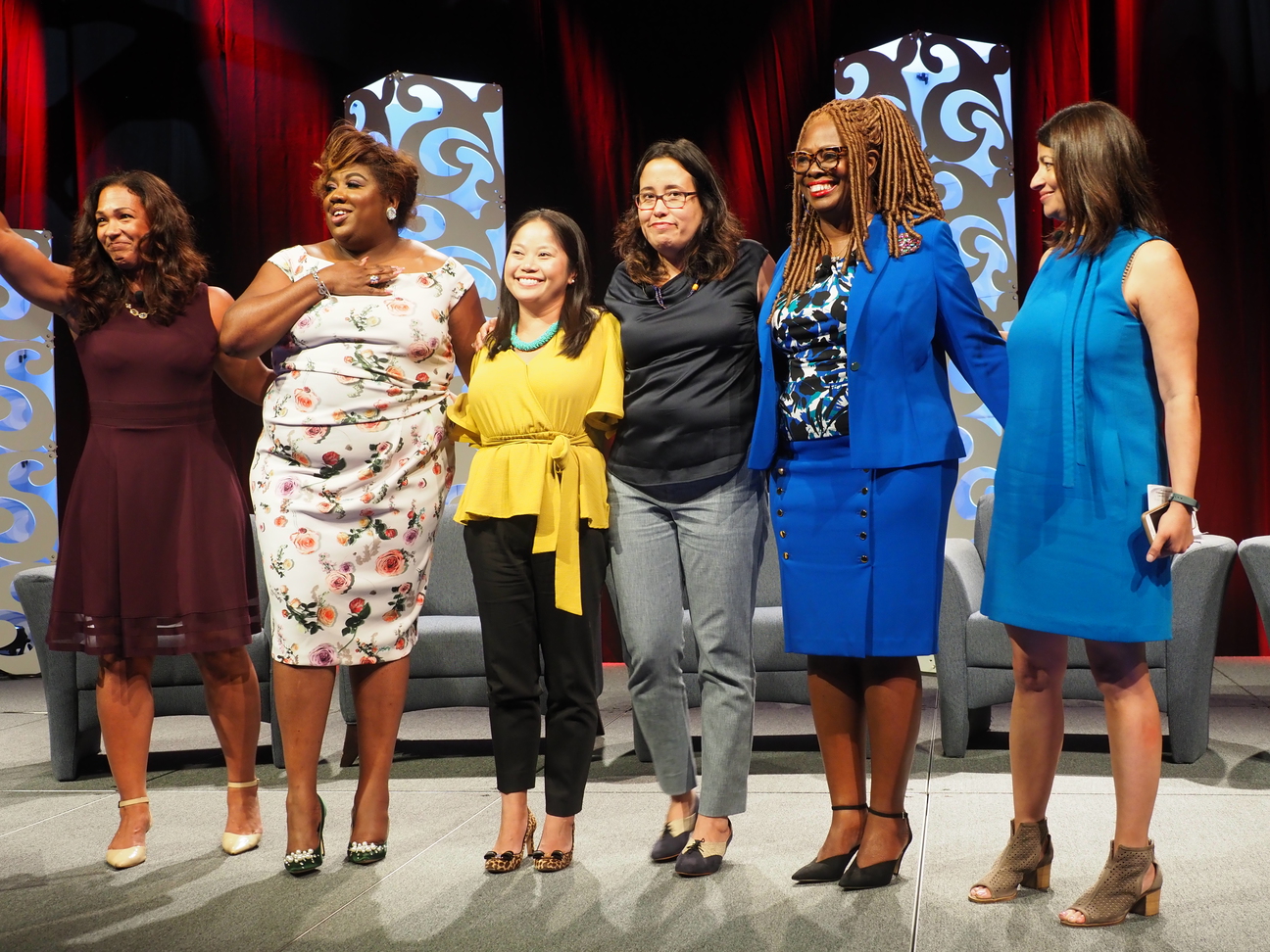Welcome back to our live coverage of Netroots Nation 2018.
It is Day Two here in New Orleans of the country’s largest annual gathering of progressive activists, elected leaders, and advocacy journalists.
This afternoon, Netroots Nation heard from a group of speakers organized by Aimee Allison during the convention’s second plenary session.
The panel discussion, presented under the title Hidden Figures: How Women of Color are Making History in the Midterms, highlighted women of color who are working to develop political strategy, energize voter turnout, and build political infrastructure in communities of color throughout the South and beyond.
The panel’s first speaker was Dejuana Thompson, the creator of Woke Vote, a program designed to mobilize the voter turnout of black youth and faith based voters. Woke Vote (along with her other organization, Think Rubix), were influential in moving over one hundred thousand people of color to the polls to help elect Doug Jones, the first Democratic U.S. Senator from Alabama in decades.
Thompson emphasized the need to build off of the work done in Alabama last year by expanding political infrastructure and programming in black communities. She reminded attendees that black women have been systematically politically ignored in this country despite being some of the most reliable Democratic voters.
The panel discussion then moved to Virginia and Texas, where Tram Nguyen’s organization New Virginia Majority and Crystal Zermeno’s Texas Organizing Project have been helping to organize communities of color to transform and develop progressive leaders and voter engagement.
LaTosha Brown of the Black Voters Matter Fund spoke of the need to invest in rural political infrastructure, areas that are too often ignored in political conversation. She mentioned the importance of tapping into the existing social infrastructure of rural communities, such as churches and community groups, instead of trying to reinvent the wheel and build political infrastructure from scratch.
Sayu Bhojwani, founder of New American Leaders, was the panel’s final speaker. Her organization helps to recruit and train first and second generation American leaders to run for office. The organization helps break down societal barriers for new candidates and works with elected leaders once they are in office to ensure they stay true to progressive values and remain connected to the movement.
Former Michigan State Representative, Rashida Tlaib, is a past member of their program who is running for Congress in the midterms.
This afternoon’s plenary session also featured powerful speeches from two high profile progressive leaders who are considered potential presidential candidates: Massachusetts Senator Elizabeth Warren and California Senator Kamala Harris.
In her speech, Elizabeth Warren took her audience back to the 2008 financial crisis, detailing how our elected representatives in Congress repeatedly put the interests of powerful corporations and banks ahead of working people.
“Who does the government work for?” she asked rhetorically. “The rich and powerful profit when government doesn’t work for working people.”
In order to keep control of public policy, she argued, the rich and powerful engage in politics of division, pitting working people against each other.
“They want us pointing fingers at each other so that we won’t notice their hands are in our pockets,” Warren said. “The politics of division may be the one thing that Donald Trump is actually good at.”
Warren stated overturning Citizens United, locking the revolving door, getting big money out of politics, and fighting back against gerrymandering and voter suppression are necessary steps towards making government work for all people.
When Senator Kamala Harris took the stage, she took the opportunity to reiterate the overarching message from the Hidden Figures panel discussion.
“Black women were critical for Doug Jones’ victory,” said Harris.
“We should be electing women of color as those leaders, not just thanking them for helping to elect others.”
This afternoon’s discussion and keynote speakers were inspired and impassioned, highlighting incredible women who advocate every day for policies based on the logic of progressive values that will strengthen our communities.
If the progressive movement is successful in fielding a diverse field of candidates for office across the country, it won’t be long before pioneering women like Thompson, Nguyen, Zermeno, Brown, and Bhojwani will be hidden figures no longer, but instead representing us at the local, state, and federal level.
Want to see this keynote in its entirety? Play the video any time on demand here.

